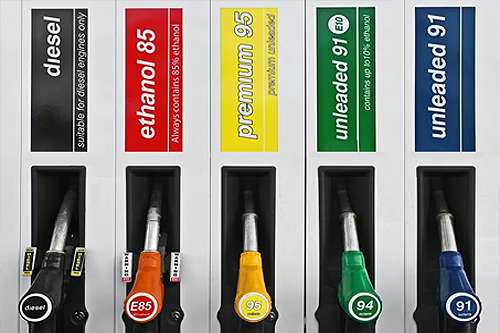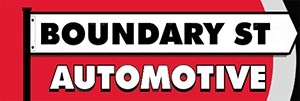Fuel Type and Performance - Optimise Your Vehicle's Efficiency
As you drive around Townsville or embark on a road trip through North Queensland, choosing the right fuel for your vehicle plays a crucial role in maintaining peak performance, improving efficiency, and minimising fuel costs.
Selecting the appropriate fuel type ensures your engine runs smoothly, prevents unnecessary repairs, and helps extend your vehicle’s lifespan. In this comprehensive guide, we explore the different fuel options available in Australia, explain how they impact your car’s performance, and debunk widespread fuel myths., empowering you to make informed decisions for your journey.

Drive smart and use the right fuel to maximise your engine performance.
Save on fuel costs as you travel and avoid expensive car repairs
Types of Fuels & RON Octane Ratings in Australia
The fuel type you use plays a crucial role in your vehicle’s performance and efficiency, particularly in Townsville, where diverse driving conditions and a wide variety of vehicles are common.
Understanding fuel types and vehicle performance requires knowing how different fuels affect your engine’s combustion process. In Australia, Research Octane Number (RON) is a key measure of a fuel’s octane rating, which indicates how well the fuel resists premature ignition under pressure. This is essential for avoiding engine knocking, which can reduce efficiency and cause damage over time.
How RON Affects Fuel Performance
- Combustion Quality: Fuels with a higher RON are less likely to ignite prematurely under compression, which helps to ensure smoother engine operation and better performance.
- Engine Tuning: Vehicles with high-performance or turbocharged engines are typically tuned to take advantage of higher RON fuels. Using a fuel with a higher octane rating can enhance engine performance and efficiency.
Types of Fuels and Their RON Ratings in Australia
RON is a critical factor in determining the quality and performance of petrol. In Australia, the common RON ratings for fuels are 91, 95, and 98, with each grade suited to different types of vehicles and driving needs. Understanding RON helps owners make informed decisions about the best fuel type for their passenger car, 4WD, or Fleet Vehicles, ensuring optimal performance and longevity.
-
Regular Unleaded Petrol (91 RON): This is the standard grade of unleaded petrol in Australia with a RON of 91. It is suitable for most everyday vehicles and is often recommended for vehicles designed to run on regular unleaded petrol. It offers a balance between cost and performance for standard engines.
-
Premium Unleaded Petrol (95 RON): Often referred to as Premium Unleaded, this fuel has a higher octane rating than regular unleaded petrol and is used to improve performance and fuel efficiency in some vehicles.
-
Premium Unleaded Petrol (98 RON): This is a higher grade of Premium Unleaded with an even higher octane rating. It is suitable for high-performance vehicles, luxury cars, and those with advanced engine technology that require or benefit from higher octane fuel.
-
E85 RON: This fuel blend contains up to 85% ethanol and 15% petrol. Its octane rating is significantly higher than that of standard petrol. E85 typically has a RON rating of around 105, which means it offers excellent resistance to knocking and can be used in specially designed engines.
Knocking Prevention: Using fuel with the appropriate RON rating for your vehicle helps to prevent engine knocking, which can lead to reduced performance and potential engine damage. Always follow the manufacturer’s recommendations for octane ratings. Using fuel with a RON higher than required generally doesn’t provide additional benefits and may not justify the extra cost, while using a lower RON fuel in an engine designed for higher octane can result in reduced performance and efficiency.
Petrol 4WD Vehicles
For 4WD vehicles, especially those used for off-road adventures or heavy towing, using the correct fuel type is crucial for maintaining optimal performance. While many petrol 4WDs Vehicles can run efficiently on regular 91 RON fuel, higher RON fuels (95 or 98) can provide better performance and fuel efficiency, particularly in turbocharged models. It’s essential to check your vehicle’s specifications and choose the fuel that matches the manufacturer’s recommendations.
4wds and Other Diesel Vehicles
Diesel engines operate differently from petrol engines and do not use RON ratings. Instead, they rely on Cetane ratings, which measure the fuel’s ignition quality. Diesel fuel with a higher Cetane rating will ignite more readily under compression, leading to smoother engine operation and better performance. In Australia, diesel fuels typically have a Cetane rating of around 50, which is suitable for most diesel engines. Premium diesel fuels may offer slightly higher Cetane ratings, providing enhanced performance and efficiency. Learn more on Australian Fuel Regulations and Diesel Fuel Quality Standards.
Using fuel with the appropriate RON or Cetane rating for your vehicle ensures smoother engine operation, better fuel efficiency, and prolonged engine life. Got a fuel issue? Contact the experts in fuel system diagnosis at Boundary St Automotive Today!
Fuel Myths - Car's Performance & Fuel Efficiency
Understanding the truth about fuel can help you avoid costly mistakes. Here are common myths debunked:
Myth 1: Higher Octane Means Better Performance for All Cars
Fact: Higher octane benefits only vehicles designed for it. Regular engines see no advantage and it can be a waste of money.
Myth 2: Premium Fuels Clean Your Engine Better
Fact: All modern fuels contain detergents. Regular unleaded is sufficient for most vehicles when maintenance is up to date.
Myth 3: Ethanol Fuels Damage Engines
Fact: Ethanol blends like E85 are safe for engines designed to run on them. Using ethanol in incompatible engines can cause damage.
Myth 4: Higher Octane Improves Fuel Economy
Fact: Fuel economy depends more on your driving habits and maintenance than on using premium fuel.
Myth 5: Fuel Additives are Necessary
Fact: Quality fuels already include essential additives. Additional products are often unnecessary unless specified by your manufacturer.
Myth 6: Cheapest Fuel is Always Best
Fact: Fuel quality matters. Low-grade fuels from unreliable sources may contain contaminants harmful to your engine.
Myth 7: Mixing Fuels is Harmless
Fact: Minor mixing may not cause immediate issues, but consistently using the correct fuel optimises performance and efficiency.
Myth 8: Fuel Doesn’t Expire
Fact: Fuel degrades over time. Stale fuel can cause engine issues, particularly in vehicles left unused for months.
Myth 9: Premium Fuel Helps Regular Engines
Fact: Using premium fuel in an engine designed for regular petrol offers no performance gains and wastes money.
Myth 10: All Fuel is the Same
Fact: Reputable fuel brands offer better quality control, cleaner fuels, and reduced risk of contamination.

Car Servicing & Fuel System Repairs by Townsville Mechanics
Selecting the right fuel is just one aspect of ensuring your vehicle runs smoothly. Regular Car Servicing and expert car care from one of our professional Townsville mechanics is an essential part in keeping your vehicle in top condition.
Our workshop offers comprehensive car services tailored to meet your vehicle’s specific needs. Our experienced team can help you with everything from Fuel System Maintenance and Diagnostics to ensuring your engine is running optimally for the fuel type you use. We’re dedicated to providing high-quality service and advice to help you get the most out of your vehicle.
By choosing our workshop for your vehicle maintenance and repair needs, you’re not only ensuring that your car performs at its best but also gaining peace of mind knowing that all parts used and labour performed is covered by the Repco Nationwide Warranty in over 500 locations across Australia. Whether you need a routine check-up, fuel system inspection, or expert advice on fuel choices, we’re here to assist you.
Our trusted workshop will keep your vehicle running smoothly and efficiently. Contact us today to schedule an appointment or to find out more about our automotive services. Your car deserves the best care, and we’re here to provide it.

